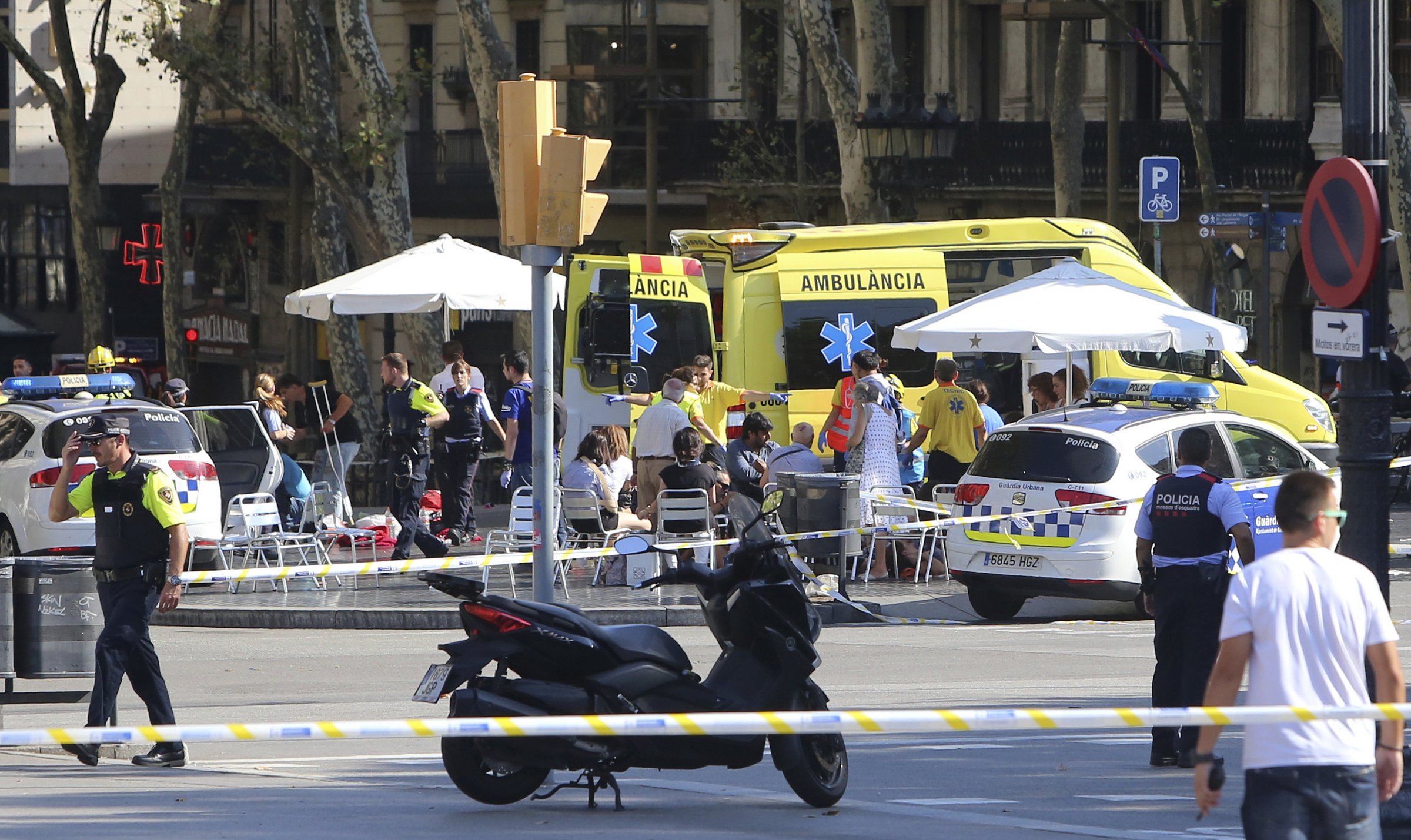Terrorism has once again returned to the streets of Europe, this time Spain. Unfortunately, it won’t be the last time such senseless and tragic attacks occur. The recent frequency of terrorist acts, not only in Europe but around the world, shows that it remains a considerable risk when frequenting public spaces or traveling to tourist locations.
It also shows that policing, security and intelligence operations are neither foolproof nor the only solutions to address this ongoing problem. Greater efforts must now be made in prevention, such as building community capacity and resilience to effectively engage vulnerable youth.
To do this, governments need to learn how to successfully engage communities. Engagement means developing equal and trusted partnerships so that a better understanding of the possible drivers of these criminal acts can be ascertained. Only then can preventative strategies or interventions be designed with greater efficacy.
The terrorists’ target on this occasion was the popular tourist area of Las Ramblas in Barcelona. So far, the death toll stands at 13, with more than 100 others injured, and at least 15 of those are in a critical condition. There is also a possibility that this was an attempt to carry out coordinated and large-scale attacks in several parts of Catalonia. This is not the first time Spain has been targeted. In 2004, commuter trains were bombed by al-Qaida sympathizers in Madrid.
While various forms of bombings are still a favored tactic, the use of vehicles as a weapon is now becoming more well-established – and hard to predict. In the last 13 months, there have been similar attacks in France, Germany, Sweden and the UK. Overall, the Islamic State (IS) seems to be concentrating on attacking anyone, anywhere, and with any means. Often with great surprise – so much so that no one saw this recent attack coming or where it was going to occur.
Tourist locations and public spaces have always been vulnerable and attractive to all sorts of criminality; however, they are now more at risk than ever before from terrorism. Spanish authorities were apparently aware of the increased threat and had thwarted a plot to use a truck against pedestrians in November 2016. Efforts had subsequently been made to reinforce public spaces with bollards and concrete blocks, extra police were deployed, and intelligence gathering was increased.
Yet the attack still occurred, so what went wrong?
One reason is that perpetrators are becoming harder to detect. Normal mechanisms of intelligence collection, communications interception, analysis and policing are struggling. This is largely because there is no real terrorist profile. Sometimes they have criminal records and often they have never come to police attention before. In this current attack/s, it appears they were young adults,; however backgrounds are yet to be established. In other cases, such as the recent disruption of a plot in Sydney, Australia, to bring down a passenger plane, the alleged perpetrators were in their 30s and 40s.
Another reason is that government relationship with minority communities in many Western countries are at significant low points because of both domestic and international politics to do with issues like racism and discrimination, refugees, oppression of Muslims, bias in criminal justices systems – the list goes on. Therefore, any cooperation with governments is usually on a strained basis, or in search of funding. In many cases, communities do not trust governments or police, so vital information may be withheld rather than reported.
But community relationship not all about reporting or collecting intelligence. They should be based more on building capacity and working with families to prevent young people from carrying out these senseless acts.
For most of us, it will always be hard to fathom why someone would want to plow a van into a crowd of tourists or to try and understand why they did it. As a criminologist and working closely with Muslim communities in Australia, I spend most of my time trying to engage offenders, vulnerable youth and their families to really understand possible problems and motivations. From this information, I am then in a better position to develop culturally appropriate interventions with communities.
To date, many solutions or de-radicalization programs that have been developed by governments have been based on flawed understandings of radicalization and violent extremism. As a result, we are seeing programs like Prevent in the UK failing and the French de-radicalization program being seen as “a total fiasco” and scrapped. It is no wonder these have been criticized by Muslim communities, mainly because they lack any real connection to what is happening on the ground, such as the actual problems experienced by young Muslims and their families.
As a result, responses have tended to be developed and driven by governments and police, rather than working with communities to develop grassroots solutions. This top-down approach has resulted in very little ‘buy-in’ by young people or their families and, in many cases, these strategies have been counterproductive. In fact, if the approach is wrong, it can potentially exasperate the underlying problems that led young people to offend in the first instance.
If we are to really make an impact on domestic terrorism, government policies and solutions to counter future acts must start to seriously explore other options that are outside of national security or police apparatus. Answers will not be found only by way of interrogations or police interviews.
Preventative measures to reduce the terrorism threat will become more effective once we learn how to truly engage communities to build capacity, co-design solutions and actively engage troubled youth in trusted environments. Only then can we build long-term protective factors in young people to reduce the chances of them committing senseless terrorist acts like we just witnessed in Barcelona.
Disclaimer: The views and opinions expressed here are those of the author and do not necessarily reflect the editorial position of The Globe Post.





















